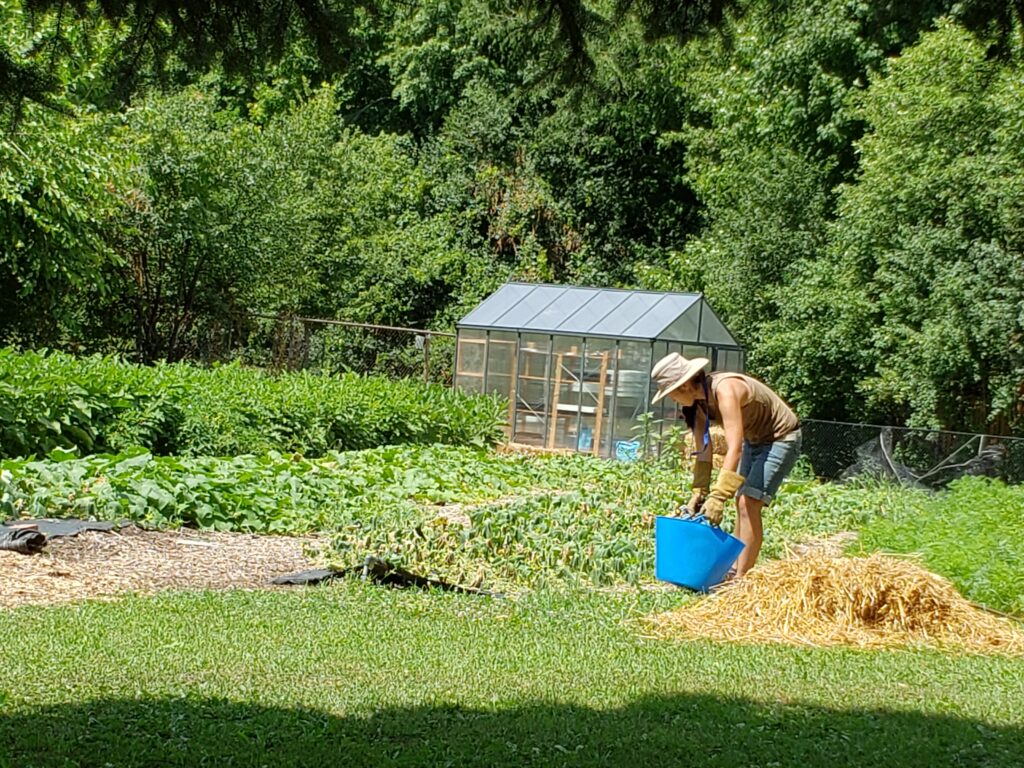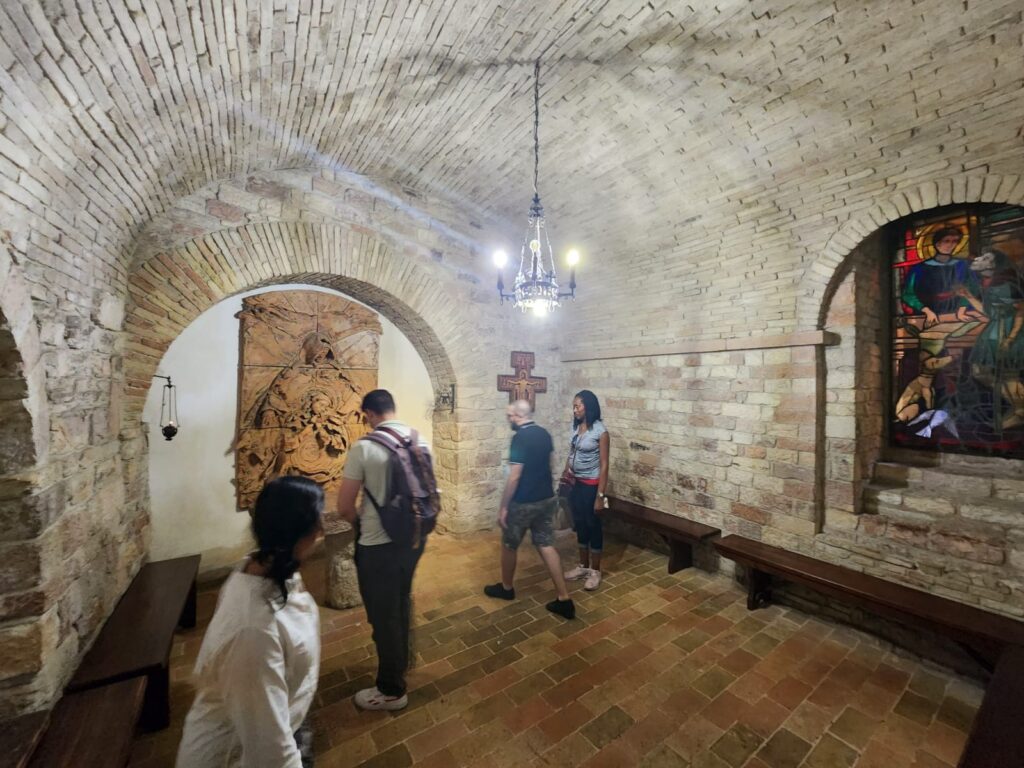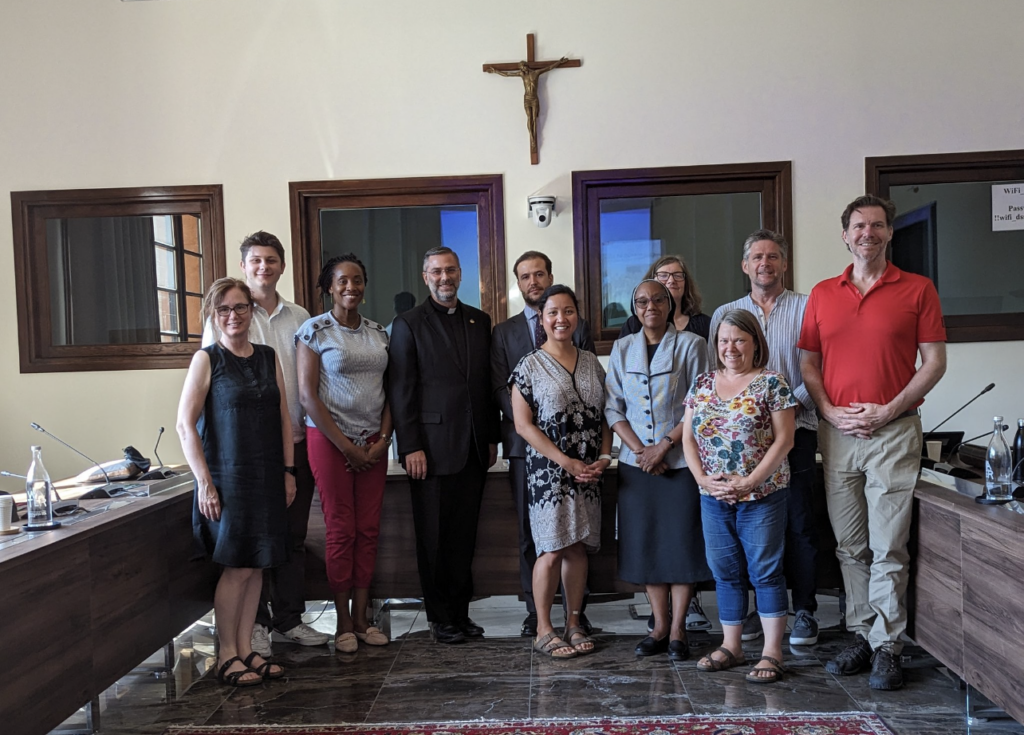The Regis St. Michael’s Faculty of Theology (RSM) is offering a schedule packed with immersive learning experiences this summer, with experiential course offerings taking students from the Vatican to an inner-city farm and places of worship around Toronto.
New this year is the Food/Justice, Farming and Eco-Theology in the City course taught by Dr. Hilda Koster, director of The Elliott Allen Institute for Theology and Ecology (EAITE). “There are so many ways in which food plays a role in the liturgy and religious practice, but this course will focus on the ethical issues related to food,” says Dr. Koster.

Students registered in this course will meet daily from July 8-19. The classroom component includes discussion around the readings, and students are invited to share their experiences with issues that surround food justice. Through on-site visits, students will learn about sustainable agriculture practices and church ministries that alleviate food insecurity.
A highlight of the course will be the trip to The Common Table, an urban farm run by Toronto’s Flemingdon Park Ministries that grows food to distribute to the local community. This partnership was fostered by Melodie Ng, a graduate student at EAITE and the farm’s manager.
“There’s an experience of the spirit as you work with the land. Your senses are engaged by the world around you, and this can enhance the reading materials in terms of what growing food entails and the environmental concerns around the food industry,” says Ng.
The course will also include an overnight stay at the Ignatius Jesuit Centre in Guelph, which has an organic farm where students will spend the morning learning about food and theology through gardening. For a full farm-to-table experience, the course will conclude with the class sharing a meal.

Once again, Dr. Michael Attridge will take a small group of students to Rome for the Catholic Perspectives on Ecumenical and Interreligious Movements course. Students will gather in Rome from June 23 to July 21 to witness ecumenism firsthand by taking part in a summer course on Christian unity held at Centro Pro Unione, an institution run by the Franciscan Friars of the Atonement.
“Students come from all over the world to attend this course in Rome. To have a chance to learn with students from different parts of the world and hear their questions is to understand the different perspectives — this is the real value of the class,” says Attridge.
Students will attend lectures in the morning and in the afternoon will visit local landmarks that exhibit ecumenism and interreligious dialogue, including the excavations under Saint Peter’s Basilica, the city’s Jewish ghetto, and the Great Synagogue of Rome, as well as the Islamic Cultural Centre of Italy. The students will come together for weekly colloquiums to discuss what they’ve learned and witnessed over the week.
The course also includes visits to the Vatican’s Dicasteries for Christian Unity, Interreligious Dialogue and Promoting Integral Human Development, where they will tour the offices and speak directly with decision-makers regarding the Church’s response to Christian unity and interreligious dialogue.
“Something about these visits that stays with me is the Vatican officials’ expression of appreciation for the work the students are doing locally. Their message is always, ‘the ecumenical work you do in your parishes, theological schools, and social service organizations makes what we do possible,’” says Attridge.
Theology students also can engage in interreligious dialogue locally through this summer’s Interfaith in the City course. Mia Theocharis will lead this course, which runs from July 22 to August 2. It will expose students to Toronto’s religious diversity through visits to different houses of worship and community centres, where they will be introduced to non-Christian prayer and liturgy, view sacred spaces, and observe different religions’ approach to social justice.
“The experiential component adds so much depth to the material. It’s one thing to be in class learning about these religions, but then to go into these places of worship and have conversations with their spiritual leaders, it adds the personal element. It gives a space for dialogue where students can ask questions and spiritual leaders can respond directly,” says Theocharis.

